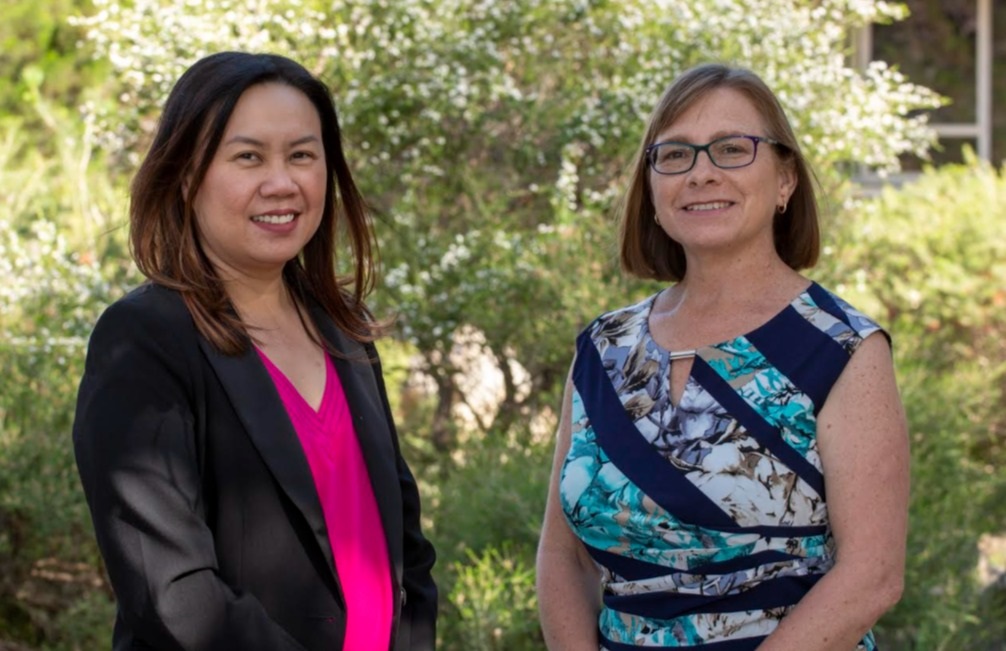
DPIRD primary industries trade manager I-Lyn Loo, left, and livestock identification and traceability manager, Beth Green, have been awarded a 2020 Churchill Fellowship.
WESTERN Australian government officers will investigate livestock identification and regenerative agriculture practices overseas to fulfil their 2020 Churchill Fellowship obligations.
Department of Primary Industries and Regional Development officers — primary industries trade manager I-Lyn Loo and livestock identification and traceability manager Beth Green – are among 112 Australians to be awarded fellowships this year.
Are self-regulating livestock ID systems working?
Ms Green intends to explore what motivates the livestock industry in different countries to embrace self-regulated livestock and food safety traceability programs.
She plans to visit Scotland, Canada, the United States and Uruguay to examine how each country’s traceability system for sheep, cattle and goats is evolving.
“A safe and sustainable food supply chain free from disease and contaminates, backed by a strong traceability system is paramount for animal health, public health and market access.
“I hope to discover what motivates livestock industries in different countries to develop consistency in traceability systems and achieve a high level of participation for self-regulation,” she said.
Why do consumers pay a premium for regenerative agricultural products?
Ms Loo will examine the commercial drivers behind regenerative agriculture and what motivates consumers to pay a premium price for products produced via this holistic farming system.
When the borders re-open, Ms Loo intends to visit the United States and Europe to visit businesses, consultants and governments to learn more about the financial incentives and mechanisms behind valuing regenerative agriculture.
“These interviews will provide an insight into consumer behaviour and how these behaviours shape a company’s purchasing policies,” she said.
“I’m also interested in how consumer behaviour drives the parameters for regenerative agricultural certification and how that translates to the production environment.
“I’m looking forward to sharing my learnings with the department and industry to encourage the uptake of regenerative agriculture practices.”
DPIRD officers will study pertinent global food issues
DPIRD director General Ralph Addis said he was proud of the pair’s achievement and wished them well in their endeavours to advance Western Australia’s primary industries.
“Sustainable agricultural production and traceability for disease control and food safety are two pertinent issues facing global food production.
“I-Lyn and Beth are both passionate about what they do and will be able to bring the learnings from their research and travels back to the department to add value and help enhance our primary industries’ right to farm,” Mr Addis said.
“Together with research scientist Tracey Kreplin, who received a Churchill Fellowship to study predator management in South Africa in 2019, these women epitomise the passion, expertise and commitment of our staff throughout the state.”
With borders currently closed, Ms Loo and Ms Green do not know when they will have the opportunity to travel to fulfil their Fellowship, while Dr Kreplin’s itinerary has also been disrupted by the pandemic. They will present the findings from their research to industry on their return.
2020 Churchill Fellowship Award Recipients from across Australia were announced this week. In Tasmania, Celia Leverton from Franklin was awarded the Yulgilbar Foundation Churchill Fellowship to identify regenerative farming practices to increase landscape, business and farmer health long term. Her investigations will take her to the United States, Canada and Mexico.

HAVE YOUR SAY